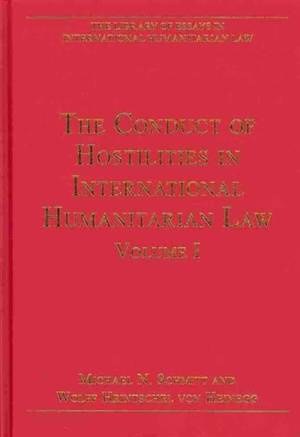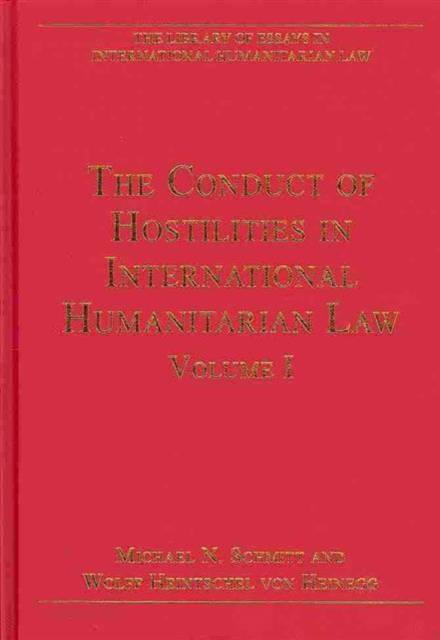
- Retrait gratuit dans votre magasin Club
- 7.000.000 titres dans notre catalogue
- Payer en toute sécurité
- Toujours un magasin près de chez vous
- Retrait gratuit dans votre magasin Club
- 7.000.0000 titres dans notre catalogue
- Payer en toute sécurité
- Toujours un magasin près de chez vous
The Library of Essays in International Humanitarian Law: 6-Volume Set
Michael N Schmitt, Wolff Heintschel Von Heinegg
1.886,45 €
+ 3772 points
Description
This series is the product of a three-year project to bring together the most significant works in the field of humanitarian law published in the last century. In the process of selection, the editors have consulted scores of humanitarian law experts worldwide and conducted exhaustive literature surveys. The resulting library consists of six volumes arranged topically: development and principles; scope and application; conduct of hostilities; detention and occupation; and implementation and enforcement. The selected essays have either become classics of humanitarian law over time or are proving especially influential as this body of law develops in the 21st Century. A special effort has been made to identify and include works that have been 'forgotten' over time, but which merit rediscovery in the light of contemporary trends in warfare and other military operations. Taken together the collection demonstrates three points. Firstly, the work of prior generations of humanitarian lawyers has relevance for contemporary debates as many topics which today's humanitarian lawyers are struggling with have been addressed by previous generations. Second, although sometimes criticized as vague and imprecise, humanitarian law can be subjected to rigorous analysis that clarifies its intent and scope. Finally, humanitarian law is the product of a carefully crafted, and very fragile, balance between two competing concerns - military necessity and humanitarian considerations - and if this balance is thrown askew the law necessarily suffers and may eventually become inoperable. This six volume Library of Essays in Humanitarian Law reprints the most significant works in the field published in the last century and enables scholars to better understand the evolution of humanitarian law, and practitioners to apply the law on the battlefield or in national and international tribunals.
Spécifications
Parties prenantes
- Auteur(s) :
- Editeur:
Contenu
- Nombre de pages :
- 3386
- Langue:
- Anglais
- Collection :
Caractéristiques
- EAN:
- 9780754629399
- Date de parution :
- 06-09-12
- Format:
- Livre relié
- Format numérique:
- Genaaid
- Dimensions :
- 260 mm x 335 mm
- Poids :
- 8318 g

Les avis
Nous publions uniquement les avis qui respectent les conditions requises. Consultez nos conditions pour les avis.






